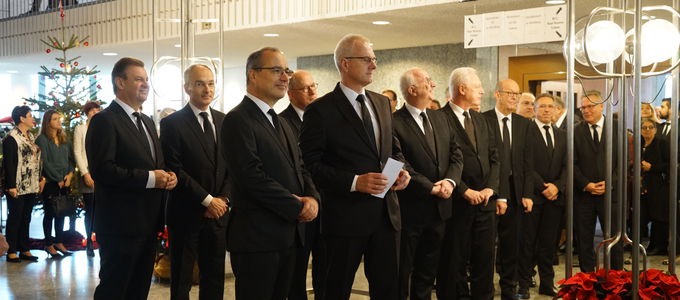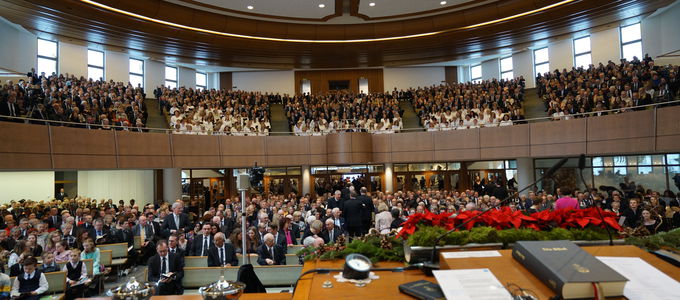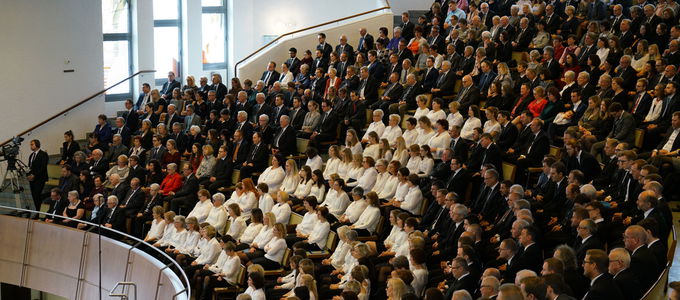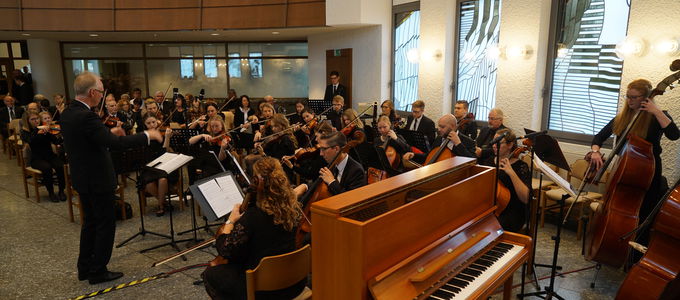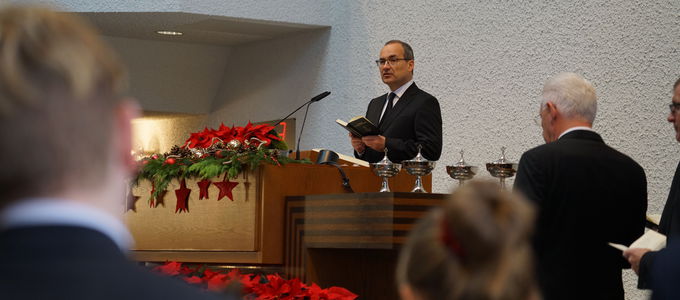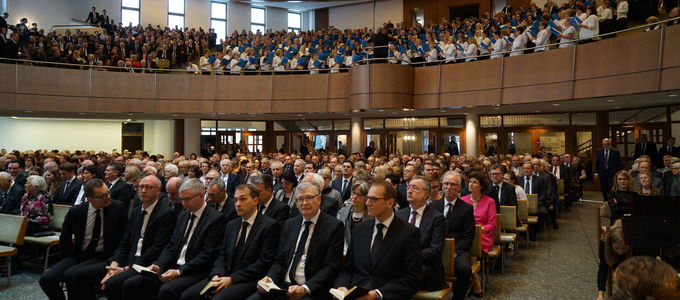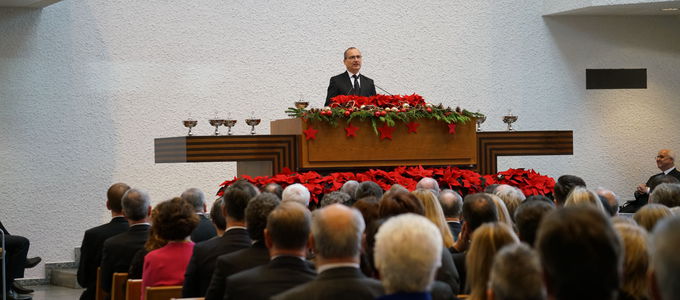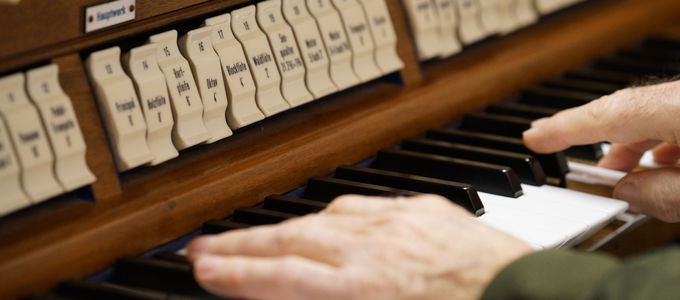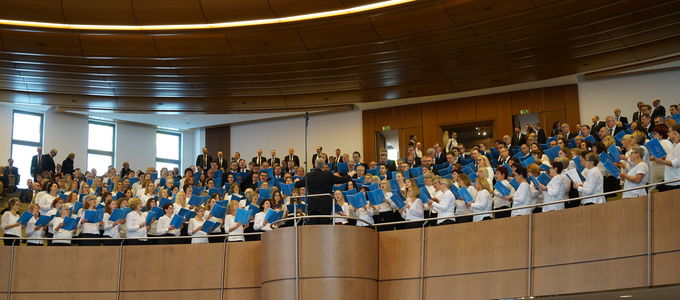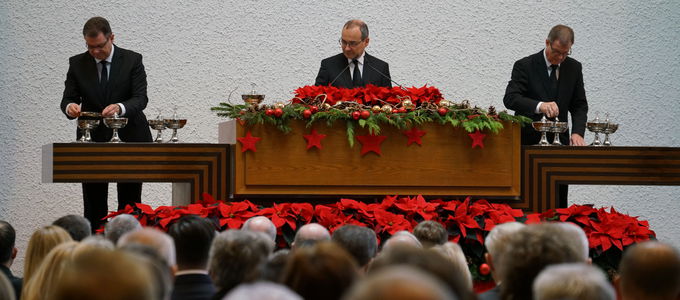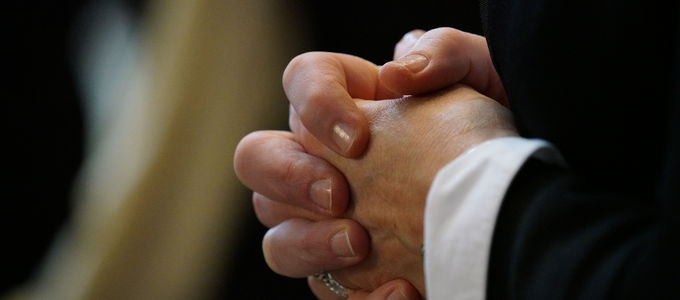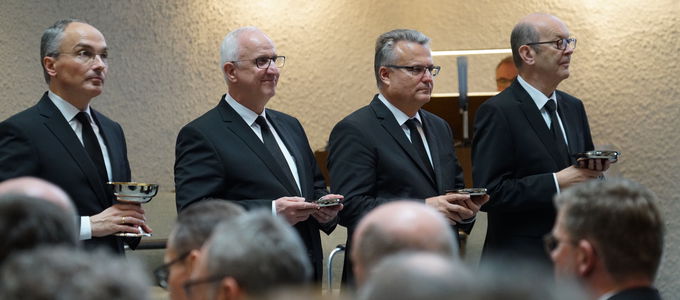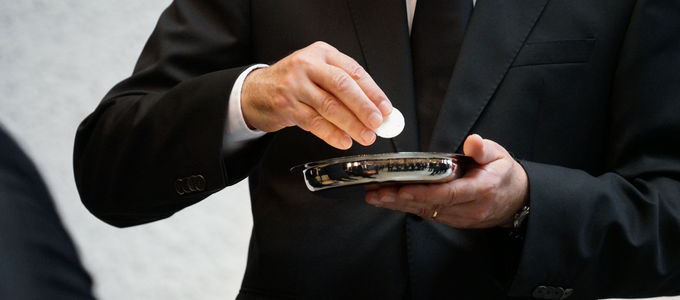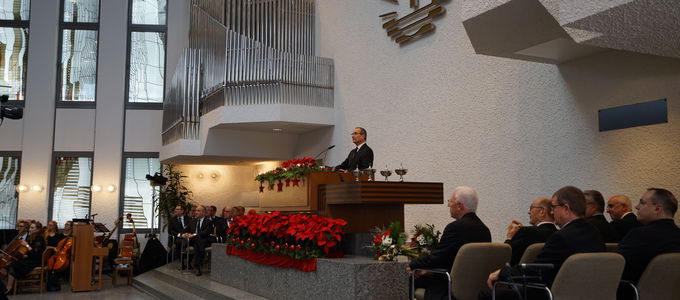What we can learn from John the Baptist
John the Baptist prepared the way for the arrival of the Messiah—today the congregation prepares the way for the return of Christ—two core statements from the Fellbach sermon conducted by the Chief Apostle. And he also went on to explain how it all works.
Fellbach, Southern Germany, 8 December 2019: Chief Apostle Jean-Luc Schneider conducts a divine service on the second Sunday of Advent with a large congregation. His sermon was heavily focused on John the Baptist—a rather special personage in God’s plan of salvation, as he pointed out. The Bible text on which the sermon was based was as follows: “John bore witness of Him and cried out, saying, ‘This was He of whom I said, “He who comes after me is preferred before me, for He was before me”’” (John 1: 15).
Drawing attention to the Lord, not to ourselves
John had been sent by God as a forerunner for Jesus. He was to announce the coming of the Messiah. He was to pave and prepare the way for the Lord. “And when Jesus then appeared, John confirmed: ‘This is the One. This is the Messiah! He is much greater than I! I am not worthy to untie his sandal straps. He is the important one. I am only a helper, only the voice that announces Him.’”
And in reference to the congregation today, the Chief Apostle noted: “The Lord also wants to come to us! He also expects us—each and every one of us—to prepare the way for Him. The Lord Jesus desires to have an encounter with us in every divine service. He desires to enter into our hearts.”
Divine services require preparation
But how is this supposed to work, given the realities of the present day? The admonition of the Chief Apostle: “We live in a hectic time. Each one of us has a great many things to do. Many of us are often under time pressure. And there we run into the danger of regarding the divine service as just another activity among many, an activity among many others. In my view that is a great danger.”
- When you read a book, listen to a conversation, or watch a movie, something had better happen within the first few minutes, and various emotions need to be triggered—otherwise you will turn it off, or close the book. It would be too boring. “Because we are defined in this way by our circumstances, the danger is that this encounter with Jesus Christ no longer comes into being. We thus remain at a superficial level, and the divine service has no enduring effect.”
- To ensure that this encounter with the Lord can indeed come into being, we must prepare ourselves for it. John the Baptist made it clear to the people who exactly was about to appear. He told them that the one who was coming was much greater, far more exalted, and much mightier than he himself was. “Who comes to me in the divine services then? None other than the Lord Jesus Christ, the incarnate Son of God! He is so great and I am so small. I cannot come to Him now with all my laments and complaints, and make demands of Him or require something of God. His word has so much greater value than mine. And because He is the almighty King, He defines the rules of the game! Jesus Christ works and acts just as He pleases—not necessarily as we want!”
Divine services are part of a process
“Every divine service,” said the Church leader, “is part of a maturing process: at times we make the mistake of thinking of a divine services in isolation, as if it were an individual situation. One was good, the other not so good. This one was really fantastic, but the other one was nothing special. But it is good for us to be aware that every divine service is part of a process. Every divine services is actually only a step, a phase, a part of this process.” Each time, we learn to become as Jesus Christ was. And the Church leader also listed some examples here. The relationship between Jesus Christ and His Father was characterised by complete trust and genuine love: “Dear brethren, that is our preparation. Let us work on cultivating such a relationship with God: let us have complete trust in—and genuine love for—God, no matter what happens, no matter where we are.”
An appeal to serve our neighbour
The Chief Apostle was also reminded of yet another parallel to John the Baptist. “He was sent to serve the Lord. He was to announce His arrival and confirm that Jesus was indeed the Messiah who was to come.” We too are called to serve God and our neighbour. “We are to announce that Jesus Christ is the Son of God. We are to confirm that He is indeed at work. And we are to pave the way for our neighbour to likewise find the way to Jesus Christ. That is our mission, a part of our service.”
Jesus loves me!
“In the process, it is very helpful to see one’s own life, and the future, in the light of the gospel,” said the Chief Apostle. “And whenever we talk about our life, there is one thing that should quickly become apparent, namely that Jesus Christ is there.” We have the certainty that we are loved. Jesus loves me. Jesus cares for me. Jesus protects me. Jesus is preparing me. I have no fear. Perhaps things are not going well for me, but I am never in despair. I also see my own future in the light of Jesus Christ, and I know where the journey is taking me. I know how things will carry on. I know what God has in mind with me. I am not afraid!”
Article info
Author:
Date:
Keywords:
Peter Johanning
16.01.2020
Germany,
Chief Apostle,
Divine service



